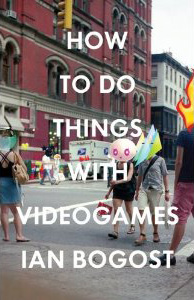teaching
CMSC 117
Introduction to Computing: Interactive Systems
overview | logistics | schedule | announcements | assignments | gallery | resources


Lecture: Tuesday & Thursday 1:30pm-2:50pm (RKC 100)
Office Hours: Tue, Wed & Thu 11am-12pm and by appointment
Texts
- Learning Processing: A Beginner's Guide to Programming Images, Animation, and Interaction . Shiffman. Morgan Kaufman. 2015. ISBN 0123944430.
- Getting Started with p5.js. McCarthy, Reas, and Fry. Maker Media. 2015. ISBN 1457186772.
- How to Do Things with Videogames. Bogost. University of Minnesota. 2011. ISBN 081667647X.
- Assignments (35%): Programming assignments
- Midterm (15%): Open-book; Open-note; Closed-computer in-class exam
- Quizzes and Homework (15%): Pencil and Paper work given every week
- Final Project (15%): A large project worked on for the last third of the term
- Critiques (15%): Presentation and critique of course-work
- Participation (5%): Positive impact on the class
- Attend class.
- Be on time.
- Participate.
- Check moodle.
- Bring your laptop to lecture, if you own one.
- Come to class prepared. Make sure to have read the required reading BEFORE class.
- Complete all assignments and start early.
- Cooperate, but don't copy.
- Credit work, including all sources you used from the web, other books, etc.
- Sharing ideas is encouraged, but blatantly copying work without attribution will be treated as scholastic dishonesty and receive no credit.
- Keep your assignment and lab work private, a USB flash drive is recommended.